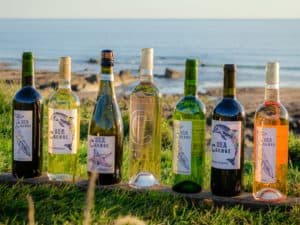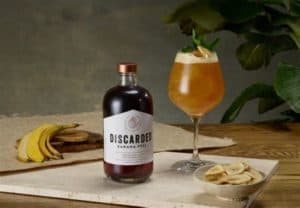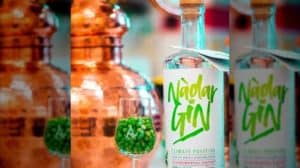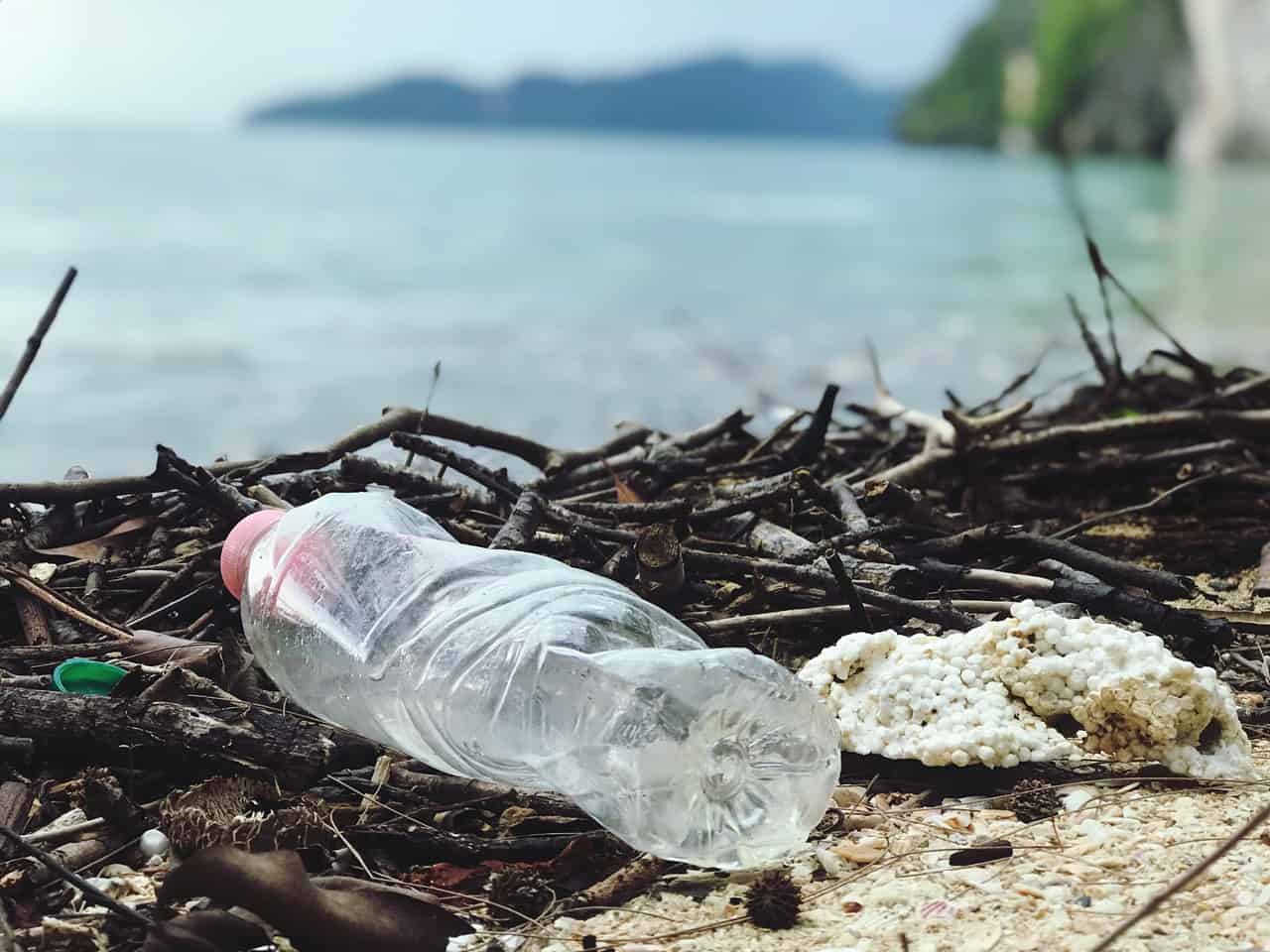Did you know that it takes around 298 litres of water to make a litre of beer? Or that the average bottle of wine has a carbon footprint of around 1,200g – the equivalent of driving three miles in a small car? Summer is in full swing and living consciously is thirsty work. As you pour yourself a refreshing beverage to watch the sunset on another day, you don’t have to compromise on your eco-values. We take a look at an assortment of delicious options for drinking sustainably.
Drinking (eco) responsibly
Unlike food, alcohol doesn’t have detailed labelling. This makes it a lot harder for consumers to conclude how planet-friendly booze is and make informed purchases. From grape to glass, there are numerous ways in which alcoholic beverages can be more sustainable.
Most alcohol is produced by fermenting fruit, vegetable or grain so the first thing we want to look out for is responsible farming of that raw ingredient. Checking that crops are sourced from organic farms is a great place to start since they avoid pesticides and harmful chemicals that can affect the soil. Organic farmers work with nature, not against it. The gold standard for agriculture is regenerative, where the health of not only the soil and crops are prioritised but that of the whole ecosystem. Sustainable alcohol producers will need to trace their grapes and grains back to farms that prioritise the environment.
In the United States, the California Sustainable Winegrowing Alliance monitors sustainable wine production and award “certified sustainable” status to winemakers that demonstrate effective “water conservation, energy efficiency, healthy soils, responsible pest management, wildlife habitat protection, solid waste management, strong relationships with employees, neighbours, and communities”
In the renowned wine-producing region of Bordeaux France, many vineyards are moving away from chemical pesticides and have introduced bats as a natural way to ward off a common pest, the grape tortrix, which causes grapes to rot.
What goes into sustainable alcohol?
The alcohol business is a pretty water-intensive industry. Spirits, wines and beer require vast quantities of water in their creation – over 90% of beer and 60% of spirits is water. Multi-national alcohol brand Diageo has set out targets for reducing water waste in its production by 30% by 2030 as part of its sustainability pledge, and smaller breweries and distilleries are following suit.
Creating your favourite drink can also be an energy-intensive endeavour. Throughout the production, negative environmental impact can be mitigated by ensuring energy efficiency at each step – better yet, they could be powered 100% by renewables.
Once the crops have been harvested, fermented and distilled they are packaged. With many types of alcohol, the vessels they are kept in throughout the process has a profound effect on the taste and quality of the finished product. Whether that is whiskey aged in casks or wine barrels, traditional methods are an integral part of the process. As the need for more regenerative practices becomes more widely accepted, producers are looking for innovative ways to cut waste while preserving the well-loved flavour of their brews.
It’s then time to package and distribute the end product to retailers. Important considerations at this stage include whether the packaging is made from recycled materials, materials that can be recycled and how heavy they are to transport.
Have you ever wondered why many alcoholic beverages are not vegan?
Often, it is because of the materials used in the filtration stage. “Some alcoholic drinks may not be suitable for vegans because of the filtering process prior to bottling. Companies may use isinglass (a substance obtained from fish bladders), gelatine, egg whites, seashells and other animal products which capture impurities,” Dominika Piasecka, spokesperson for The Vegan Society describes. The plant-based drinkers among us will be pleased to learn that the vegan alcohol market is steadily growing. Keep an eye out for the official vegan label as assurance that your booze does not contain any animal products. Commonly used vegan finings includes pea protein and bentonite which is made from clay.
What to look out for?
While the vegan label will tell you that the drink has no animal products, it doesn’t guarantee that it was produced sustainably. Without global industry standards to use as a benchmark, as consumers, we have to do a little more digging. Below are some tips to guide you when choosing eco-conscious tipples.
> Is it organic? As we mentioned above, organic farming protects consumers from harmful chemicals and prioritises healthy soil and ecosystems. It’s also said that organic alcohol is much less likely to cause a hangover!
> Is it local? Local breweries and vineyards are often small family businesses that are doing amazing things. Seek out producers in your area to cut down on emissions through transportation.
> What is the sustainability plan? Check out the brands’ website and look for the sustainability policy. There should be evidence that the business has identified areas for improvement – sourcing materials, energy usage, production, packaging etc – and clearly defined, ambitious goals and timelines to achieve them. And if you can’t find enough information, message them.
> How are they giving back? To go the extra mile, purpose-driven businesses are looking for innovative solutions to reducing food waste and supporting tree-planting and ocean cleaning initiatives.
Here are a few of our top picks for sustainable sips.
Wine and Champagne
Sea Change is on a mission to turn the tide on plastic pollution and the harmful effects it has on our oceans. For every bottle of Sea Change purchased, they donate to fund ocean conservation projects across the globe via their charity partners. Since its launch, Sea Change has raised in excess of €100,000 to support projects that help turn the tide on plastic pollution and the devastation it is causing.
When it comes to their product they have taken several steps toward sustainability. These include the removal of the unnecessary plastic wrap around the cork, the use of renewable plant-based closures and the paper for the labels coming from certified sustainable forests and made partially from grape waste. Their delicious wines include full-bodied reds, crisp whites, a fruity rose and sparkling prosecco.
Sea Change was founded in the UK but is now available in Hong Kong.
Through the Grapevine (TTG) wines
Founded by Emma Clough, CSW (Certified Specialist In Wine) a passionate wine enthusiast, TTG sources sustainable and organic wines from family-run vineyards around the world. The TTG portfolio includes classics from the New and Old World and their website allows you to search for wine by region allowing you to find the most sustainable version of your favourites.
Delivery is available island-wide in Singapore.
Le Grappin
Created in France by Andrew Nielsen and his wife, Le Grappin is a low-waste winery using a ‘low intervention’ philosophy that uses as little technology as possible so as to dramatically reduce energy usage. The couple has also developed an innovative new packaging – the ‘Bagnum’ (magnum in a bag) to reduce the need for heavy glass bottles and reduce emissions from distribution. The bag also costs the consumer less than a glass bottle would and is handy for taking to events where glass is not allowed in case of breakages like picnics or festivals.
Beer
Famous for their craft beers, Brew Dog is now carbon negative and has several schemes in place to ensure they take more carbon out of the atmosphere than they emit. As well as reducing their CO2, BrewDog is a certified B Corp and launched the BrewDog Foundation – a £1 million annual fund that grants funds to environmental charities like The Woodland Trust, Carbon Neutral, Ribble Rivers Trust and Nature Conservancy of Canada.
Crust
In a quest to tackle food waste, CRUST takes surplus bread from bakeries and hotels and gives it a new life as delicious craft beer. In addition to beer, CRUST has added a new range of beverages that they create from food peel that would otherwise have gone to waste. Since its launch, the company has produced 13,000 litres of premium beverages, saved 727 kg of food from being wasted and reduced 1,182 kg of carbon emissions.
Hong Kong Beer Co.
Brewing small batches of quality craft beer, Hong Kong Beer Co. recently carried out an in-depth review of all its operations and processes and has set out on a journey to become a sustainable business. From reducing their carbon emission to ensuring all their bottle are recycled, the company has already made some bold changes towards going eco-responsible.
Gohan Biiru
Beer made from sushi rice? Sure, why not! Many Asia beers are brewed using rice but Gohan Biiru, developed by researchers at the Technical University of Denmark, is the first to be created using surplus rice. The result, according to the experts is “a silky smooth ale, low on hops, rich in taste and a real thirst quencher for your ‘sticky’ meal.”
Spirits
Discarded Spirits Co. aims to pioneer a progressive wave of spirits packed full of flavour that challenges the way we use our natural resources. They are transforming frequently wasted food products into exquisite liquors. The collection includes banana peel rum, cascara vermouth and grape skin vodka.
A vodka company on a mission to plant 1,000,000 trees by 2027. For every bottle of Sapling you buy, they will plant a tree. As well as absorbing carbon from the atmosphere, Sapling recognises the wellbeing aspect of trees and support urban tree planting in London and Bristol to provide much needed green space for city dwellers.
Continuing the food waste prevention theme, Arbikie spirits has created an innovative new gin – made from peas. A family run business based in Scotland they have created ‘Nàdar Gin’, Gaelic for nature, the spirit has a carbon footprint of -1.54 kg CO2e per 700ml bottle. Arbikie describes the gin as ‘silky smooth with a fresh and fruity aroma’.
Umiki
Making a splash in the Japanese whiskey market, this distillery uses desalinated ocean water in its whiskey, which is then aged in Japanese pine barrels, giving it a unique sea-breeze aroma. Umiki gets its name from the Japanese for ocean ‘Umi’ and tree ‘Ki’. Traditional whiskey makers tend to use pure mineral water and finish the blend in white oak casks. Umiki’s use of ocean water is considered a much more sustainable method than freshwater because it is a renewable resource and the locally sourced pine is an environmentally sound alternative to importing the oak barrels.





